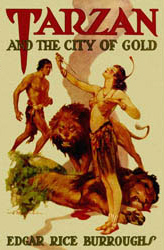This morning, I read a great, instructive Twitter thread by @writingtheother about white authors writing BIPOC characters.
FWIW, a few stray thoughts:
- I’m sympathetic to the argument that artists should be able to write, draw, sing, sculpt any old thing they want to, the only limit being their desire to do so.
- This doesn’t mean writers (the artists I’m concerned with here) would be smart to do so.
- Or that there are no consequences or politics involved in one’s choice of protagonist.
- Personal: I grew up, left, and now live again on the west side of Chicago, in Oak Park. I’m white. To write about this place in fiction and not include BIPOC characters would be a disservice not only to my own experience of my community but to race as it is lived here. I guess Oak Park native Ernest Hemingway managed to not write any BIPOC protagonists (that I’m aware of). Another Oak Parker, Edgar Rice Burroughs (the Tarzan guy), certainly DID write BIPOC characters in the colonialist mode. Me Tarzan, me problematic by contemporary social standards of representation.
- I wrote a dissertation about the history of cultural entanglement on the Micronesian island of Pohnpei, 1844-2019. The point of a dissertation is literally to “occupy a space” that has not been occupied. (Otherwise, what’s the point?) There’s no justification for me writing this rather than an islander except that nobody else was going to write this particular thing (trust me). There’s plenty of space for future scholars to take up the strands I outlined and play around. Or ignore them. At the end of the day, it’s a “contribution” not the last word on anything.
- I find “entanglement” to be a preferable metaphor to “lanes” when thinking about cultural and racial cross-pollination (to mix the metaphor further!) — it allows that one race/culture is not isolated from another.
- That does not mean that any old writer “gets” to write from the POV of another race. Or maybe they “get” to do so, but they will not be taken seriously.
- Oh! The privilege to be able to write a dissertation at all, let alone on this topic, is not lost on me. It was, and remains, a great gift to have been able to think those thoughts.
- I did get asked a version of “what gives you the right?” at conferences: my usual answer was to talk about my personal relationship to the topic (I lived on Pohnpei for eleven years). I started writing about my own life, which I think is mine to write about, and used that as a starting point to explore the past and consider the future of the place I lived in. An island I care about deeply and upon which friends and family reside. Perhaps that’s a dodge. Truthfully, I don’t have the “right”: Who could ever give such a “right”? But I do have a duty, I think, to follow my own passions and explore the world around me to the best of my ability — even if I necessarily fall short of being completely free of bias or prejudice. The duty is to life in general. We’re given one life and one set of passions, if that leads you to other places, other people… be respectful and learn, I guess.
- I suppose the point that @writingtheother was driving home is that, sure, you can write a BIPOC character but don’t be dumb about it. Don’t romanticize, fetishize, otherize, colonize, etc.


